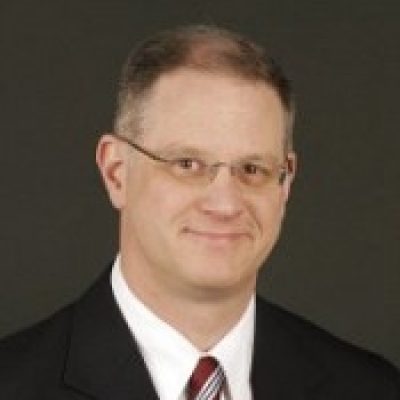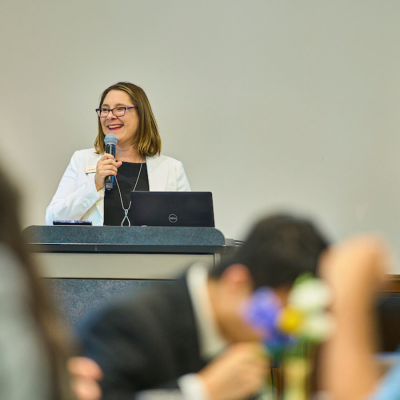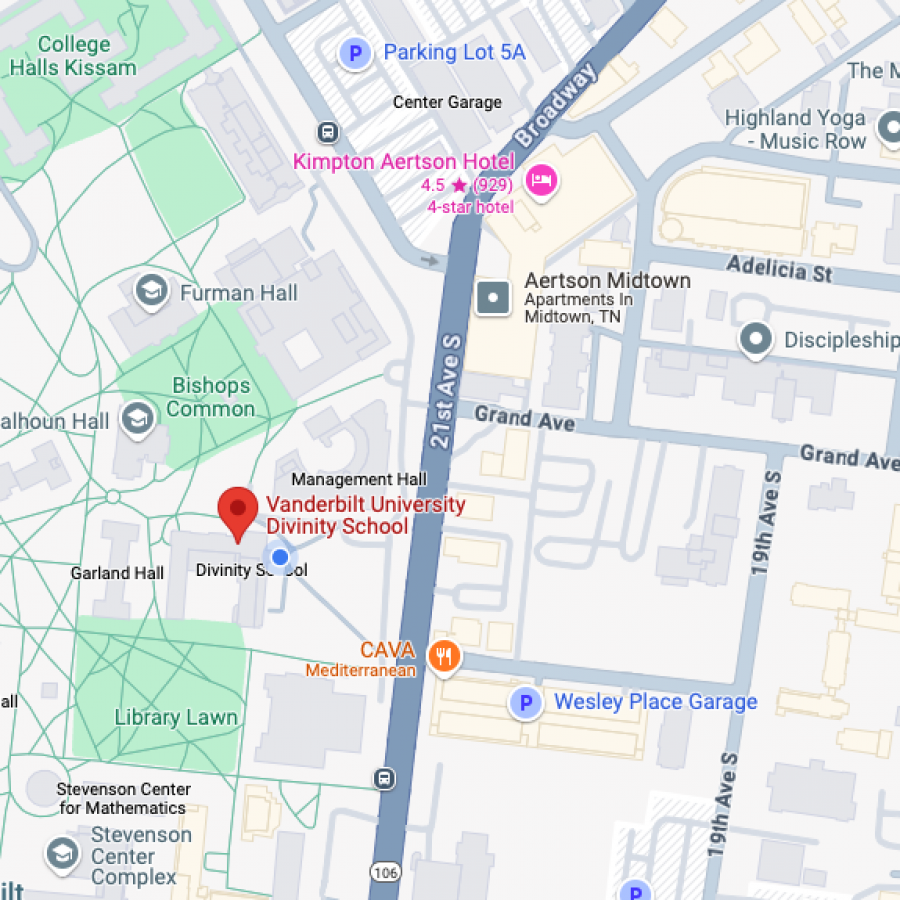Community Courses for Continuing Education
Current Courses
A Lenten Writing Retreat with the Three Divinas: Lectio, Visio, and Scriptio
Instructor: Victor Judge, Assistant Dean for Academic Affairs, Lecturer in Divinity, Lecturer in Literature and Religion
$35.00
In-person
Saturday, February 28
The Lifelong Learning Program at Vanderbilt University Divinity School is offering a Lenten workshop where participants will have opportunities to deepen their spiritual practices through poetry, the visual arts, and writing. We will adapt the discipline of Lectio Divina to poetry with Lenten themes while studying works of art in the tradition of Visio Divina. Participants also will engage in the practice of Scriptio Divina, or contemplative writing, by composing and sharing their reflections based upon prompts relevant to this liturgical season. The workshop also will include Lenten meals in the morning and afternoon.
The Wisdom of John Prine
Instructor: Dr. Jaco J. Hamman, Professor of Religion, Psychology, and Culture
$55.00
Online (asynchronous)
This 4-week course explores the genius of beloved Nashville singer-songwriter, John Prine (1946-2020). Prine becomes our guide to the good life. Questions we’ll explore, introduced through selected Prine songs, include: How can we live creatively? How best to respond to the growing climate crisis? How does one grieve loss effectively? And, how does one age with integrity? The world needs Prine’s transformational observations and sage-like wisdom.
Cinematic Divina: Religious Questions in the Films of Terrence Malick
Instructor: Victor Judge, Assistant Dean for Academic Affairs, Lecturer in Divinity, Lecturer in Literature and Religion
$55.00
In-person
Saturdays, October 4 – 25, 1:00-4:00pm
This 4-week course explores four films by the contemporary American filmmaker Terrence Malick (1943- ). Viewing Malick’s films may be compared to a spiritual exercise in which one is invited to experience cinematic art as a medium for contemplating the Divine Mystery. Each class session will include a matinee viewing of one of the four films covered in this course, followed by discussion with instructor and Assistant Dean, Victor Judge. The discussions will address artistic merit and religious questions each film invites one to ponder:
Days of Heaven
The Tree of Life
The Knight of Cups
A Hidden Life
The Faith of Frederick Douglass
Instructor: Dr. James P. Byrd, Chancellor’s Chair of Wesleyan Studies, Professor of American Religious History, Associate Dean for Graduate Education and Research in the Grad Dept. of Religion
$55.00
Online (asynchronous)
This 6-week course explores the life and writings of Frederick Douglass, focusing on his deepest-held convictions. This course offers a multifaceted assessment of Douglass’ engagements with religious groups, Biblical and theological views, and how religion informed his views of politics and society. Throughout his life, Douglass had a contentious relationship with organized religion, but his nuanced and prophetic vision of Christianity profoundly influenced his life and thought. Ultimately, this course takes a chronological approach through Douglass’ primary sources – including his writings, famous speeches, and lesser-known works – to understand his significance in his own context and continuing relevance to some of today’s most challenging questions.
Healing Our Divides? Christianity, Gender, and Sexuality
Registration coming soon
Instructor: Dr. Ellen T. Armour, E. Rhodes and Leona B. Carpenter Professor of Feminist Theology, Director of the Carpenter Program in Religion, Gender and Sexuality
$55.00
Online (synchronous)
Dates/Times: TBD
Christians are deeply divided these days over what we should think about gender and sexuality. This 4-week course will shed light on this controversy by engaging its theological roots alongside resources from historical and contemporary Christian theology. How does today’s understanding of gender and sexuality compare with earlier times – biblical and beyond? How does it align with our understanding of God? Of sin? Of salvation? Bring your questions and an open mind!
An Introduction to the Ecology of Vocation
Registration coming soon
Instructor: Dr. Nathan A. Cost, Associate Director of Lifelong Learning
$55.00
Online (synchronous)
Mondays, Oct. 20 – Nov. 17, 6:00-7:15pm
This 5-week course explores the way that our own communities and systems form our callings throughout our lives. Learners will be introduced to foundational readings, case studies, and discussion in four areas of our lives: family roles, grief and loss, congregational stories, and mentoring relationships. The way that we experience these four areas within our communities can have a powerful impact on our sense of God and purpose, oftentimes without ever realizing it. Ultimately, this course will provide learners with tools to reflect on their own vocational journeys and how they might support others as they discern their callings in all seasons of life.
Previous Courses
Life After Death: The Art of Living on Death Row. Revisited
Instructor: Graham Reside
$12.00
In-person
March 4th (6-7:30pm)
March 21st (6-7:30pm)
April 3rd (6-7:30pm)
Recently VDS hosted an art exhibit featuring the works of three men serving in federal prison sentenced to death row titled, “The Art of Living on Death Row.” The exhibit raised important questions on issues of restorative justice, moral injury, systemic racism, and punishment and redemption. This series will extend those discussions—and artwork—beyond the VDS walls, engaging in dialogue with neighbors, ministers, activists, family members, and those interested in learning more about the experience of living under a sentence of death in the United States today.
This unique lifelong learning series at Frothy Monkey coffeeshop will feature the artwork and panel discussions, interviews, and Q&A with special guests and experts in the field. The conversations will be facilitated by Dr. Graham Reside, Assistant Professor of Ethics and Society the Director of the Prison and Carceral Studies Program at Vanderbilt Divinity School.
Moral Leadership: What is It, and How Are You a Moral Leader?
Instructor: Laine Walters Young
$50.00
Online
Learners will leave the course with concrete practices for building and restoring trust, how to make their integrity known to those around them, and what courage and imagination looks like and can be applied in the everyday work of ministerial, social service, business, and nonprofit fields.
The Religion of Carcerality and the Religion of Abolition
Instructor: Andrew Krinks
$25.00
Online
Why do we have police and prisons? What role does religion play in building police and prisons, and what role might religion play in building a world without them? This course explores the religious roots and function of carceral institutions in the United States.
Lifelong Learning Introduction Video
Events
-

1/29/25
1:00 PM Vanderbilt Divinity School Room 127 (Reading Room)
Dialogue Vanderbilt: History of Scopes Trial
-

2/26/25
7:00 PM Vanderbilt Divinity School Room 127 (Reading Room)
Bogitish Lecture
Previous VDS Events
2025 Bogitsh Lecture: Drunk with the Love of God: A Mesopotamian Chapter in the History of Wonder
Let The Church Say A.I.Symposium on Artificial Intelligence and the Future of Black Digital Religion

